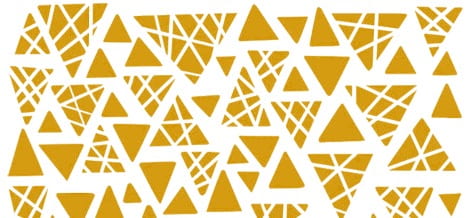With your help, the PDC has rounded up a list of conferences and workshops we as a faculty have loved in the past….
Instruction-focused Conferences
Conference on College Composition and Communication (CCCC)
What: The Conference on College Composition and Communication is committed to supporting the agency, power, and potential of diverse communicators inside and outside of the postsecondary classroom.
For: Scholars and teachers of composition
When: The 2023 annual convention on the theme “Doing Hope in Desperate Times” will be held February 15-18, 2023 in Chicago, IL.
ESCALA Educational Services
What: ESCALA is a consortium of higher education consultants based in the U.S. Southwest who are committed personally and professionally to increasing the retention and graduation rates of underrepresented students in higher education. It works specifically with Hispanic-Serving Institutions (HSIs) to close the gap in educational access and completion rates for Latinos, mainly through faculty development programming and remedial program evaluation.
For: teachers interested in developing culturally responsive teaching to benefit Latinx students
When: ESCALA’s Faculty Summer Institute on Teaching & Learning in Hispanic Serving Institutions (HSI) offers multi-day programming; dates and info for 2023 are still TBD.
The Institute for Writing and Thinking
What:The Bard College Institute for Writing and Thinking seeks to enrich learning in all disciplines through collaborative writing practices. Their July weeklong workshops help teachers deepen their understanding of writing-based teaching, its theory and practices, and its application in the classroom.
For: Teachers of writing
When: The next round of workshops will be held July 10-15, 2022
National Council of Teachers of English (NCTE)
What: The National Council of Teachers of English is devoted to improving the teaching and learning of English and the language arts at all levels of education.
For: Teachers of English/composition
When: The 2022 conference will be held November 17-20, 2022, in Anaheim, CA. No info yet on the 2023 conference.
Online Writing Instruction Symposium
What: The Online Writing Instruction Community is an academic resource that provides a sense of community for online writing instructors around the globe and that encourages the use of recent online writing instruction (OWI) scholarship, the sharing of assignments, feedback, and course design ideas.
For: online writing teachers
When: Symposia were held in August and September of 2020 and 2021. No info currently available on the website about 2022 or 2023 dates.
Young Rhetoricians Conference
What: This is a college composition conference and retreat held historically in Monterey, California.
For: College composition teachers
When: The current conference will be held virtually June 16-18, 2022. No dates have been announced for 2023, but it looks like this conference tends to take place in mid-June.
Linguistics and Other Genre-based Writing Conferences
International Association for Literary Journalism Studies
What: IALJS is a multi-disciplinary learned society whose essential purpose is the encouragement and improvement of scholarly research and education in literary journalism (or literary reportage).
For: Scholars, teachers and practitioners of literary journalism
When: The date of the 2023 conference has not yet been posted but this conference usually takes place the second week of May.
Note: this conference is a great resource if you are interested in adding reported work to syllabi and or want to teach the art and craft of reported storytelling across genres. It’s an inviting place for first-time presenters.
Investigative Reporters and Editors
What: Investigative Reporters and Editors Inc. is a grassroots nonprofit organization dedicated to improving the quality of investigative reporting. IRE was formed to create a forum in which journalists throughout the world could help each other by sharing story ideas, newsgathering techniques and news sources.
For: teachers interested in learning to scrape data and use spreadsheets for reported stories
When: IRE has ongoing virtual and in person workshops, boot camps and two annual conferences. See their website for more information.
Mayborn Literary Nonfiction Conference
What: This is an annual conference hosted by the University of North Texas’ journalism department.
For: teachers, students, and practitioners of literary nonfiction
When: The next conference is October 28-29, 2022, in Dallas, TX, on the theme “Diary of a Storyteller: Crafting Words that Matter”
New Ways of Analyzing Variation
What NWAV is a yearly conference for the presentation and discussion of new research on sociolinguistic variation
For: anyone interested in sociolinguistics/language variation
When: The 2022 conference will be held at the Department of Linguistics, Stanford University, from October 13-15, 2022.
Note: NWAV is at Stanford this fall, so it’s highly recommended to anyone is interested in sociolinguistics/language variation
Society for Professional Journalists MediaFest
What: MediaFest is a journalism convention, bringing together professional journalists, student journalists and college media advisers from every area of journalism, from across the country.
For: teachers, students, and practitioners of journalism
When: MediaFest22 will be held October 27-30, 2022, in Washington, D.C.




 A special thank you to the 42 instructors who responded to our PDC grading survey, about an 85% response rate! The full results are linked below, but here are the most important takeaways:
A special thank you to the 42 instructors who responded to our PDC grading survey, about an 85% response rate! The full results are linked below, but here are the most important takeaways: 






